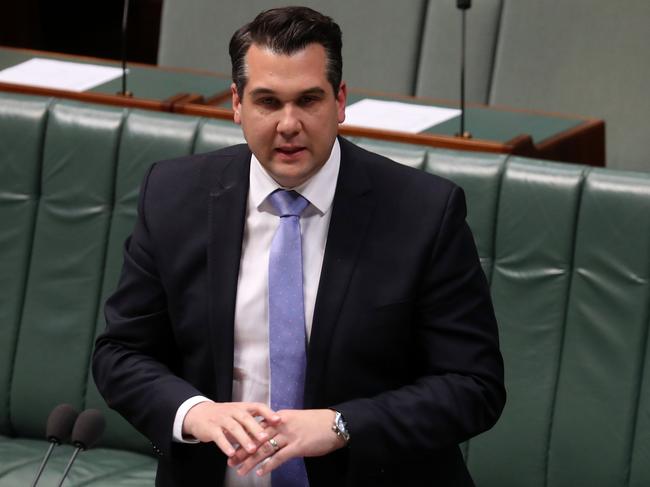New laws to make phoenixing a crime stalled before parliament
It costs the economy more than $5 billion a year — and leaves thousands of businesses in debt. Despite insisting it’s a priority, new laws making phoenixing a criminal offence are currently stalled before parliament. SEE THE LIST OF THOSE BANNED

Business operators deliberately liquidating companies to avoid debts is a scourge costing the economy up to $5 billion a year and condemning a growing number of small businesses to financial peril.
A high-level taskforce of 36 agencies is investigating more than 1000 networks of the worst operators on suspicion of using a practice known as phoenixing as their business model.
In an attempt to avoid detection of corporate cops and escape creditors these networks are regularly liquidating entities, destroying books and records, failing to pay tax and using dummy directors.
Operators typically rack up debts, before siphoning off the assets _ such as earth moving equipment or construction machinery _ for a fraction of what they are worth.
Like a phoenix rising from the ashes, the operators then set up a new entity under a different name conducting the same business using the assets of the old company. Creditors of the old entity are often subcontractors or small business operators who can’t afford to take legal action for the recovery of their funds.

Adding to the problem, there is no specific offence for using phoenix structures to stop creditors being paid.
The Morrison Government in February introduced a bill to parliament that will for the first time define phoenixing and tighten up the giant loopholes and weak penalties which have allowed the activity to flourish. The bill, which introduces criminal penalties of up to 10 years’ jail, lapsed in parliament before the federal election but has since been reintroduced into parliament.
A spokesman for Assistant Treasurer Michael Sukkar said a Senate economics committee reviewed the proposed changes and recommended the bill pass.
“The Committee was of the view that the Bill has struck the right balance between giving regulators (ASIC and the ATO) effective tools to deter and take action against illegal phoenix activity and minimising any unintended impact on honest business rescue and restructuring,” the spokesman said.
“This (bill) includes new criminal offences and civil penalty provisions targeting illegal asset stripping activity, which is a key strategy used by illegal phoenix operators. These will attract strong penalties, including up to 10 years imprisonment for the criminal offences.”
Australian Taxation Office Deputy Commissioner Will Day said: “We see phoenixing as effectively stealing from employees who aren’t paid wages and superannuation that they’re entitled to, stealing from other businesses who aren’t paid for the goods and services they provide _ or they lose customers to unscrupulous operators.”
“It’s also stealing from tax payers through not paying the right amount of tax, which should be returned to the community,” he said
“It’s an economy-wide scourge, it’s not just a tax issue, and it does have a significant impact on businesses, employees and government,” Mr Day said.
The perpetrators typically falsify documents and keep no books and records or destroy their records, leaving corporate cops with little paper trail to pursue.


“When we go into these companies for a document trail, there are no documents, there are no books and records, so you are basically trying to make a circumstantial case to prove someone’s intention and that can be pretty difficult,” Australian Securities and Investments Commission Commissioner John Price said.
“It can have a really terrible effect on smaller business,” Mr Price said.
But small businesses are often also the perpetrators of phoenixing, according to Helen Anderson, the law professor who led a review into regulating the scams.
“Illegal phoenix activity is frequently, although not exclusively, the realm of small business because a failed company has little reputation to lose by liquidating and being resurrected unobtrusively through another company, possibly with a similar name,” Prof Anderson said in the Melbourne University Law Review last year.
She added ASIC was unlikely to pursue legal action for phoenixing activities.
“At most, those caught red-handed are likely to be disqualified administratively by ASIC,” she said.
Liquidation expert with William Buck — Sean Wengel said it was too early to tell how effective the new laws would be.

“It will make a dent, how big that dent is depends on how cunning and educated the phoenix operators are. It’s probably not going to be enough to stop phoenixing in its tracks,” Mr Wengel said.
He said one controversial aspect of the bill is beefed up powers for ASIC, effectively handing the corporate cop a “quasi-judicial” role. ASIC will be able to act as “judge and jury” on matters it investigates with new powers to determine whether phoenixing has occurred and force perpetrators to repay debts.
“This is something new and potentially constitutionally challenging,” Mr Wengel said.
Under the new laws creditors also get more options to pursue debts, including taking their own court action, but must have the cash to support such legal remedies, Mr Wengel said.
More than $500 million in unpaid taxes alone has been recovered from phoenix operators since a high level taskforce of agencies and law enforcement including the ATO and ASIC was established in 2014 to attack the problem.
Small Business Ombudsman Kate Carnell said deciphering whether a collapsed company is phoenixing and not a genuine need to liquidate is challenging.
It’s often a case of “Looks like a duck, quacks like a duck”, she said.
ARE YOU A VICTIM OF PHOENIXING?
EMAIL: JENNIFER.SEXTON@NEWS.COM.AU
Originally published as New laws to make phoenixing a crime stalled before parliament


